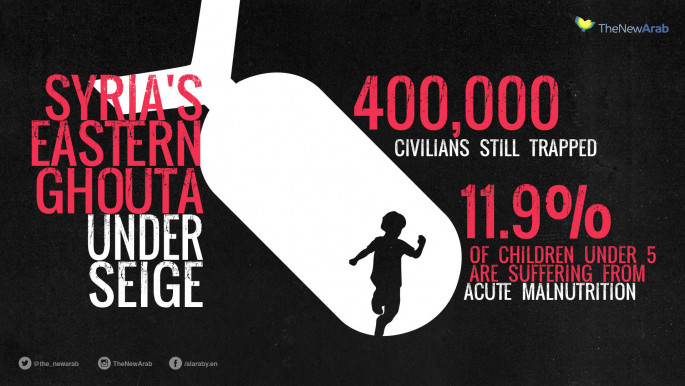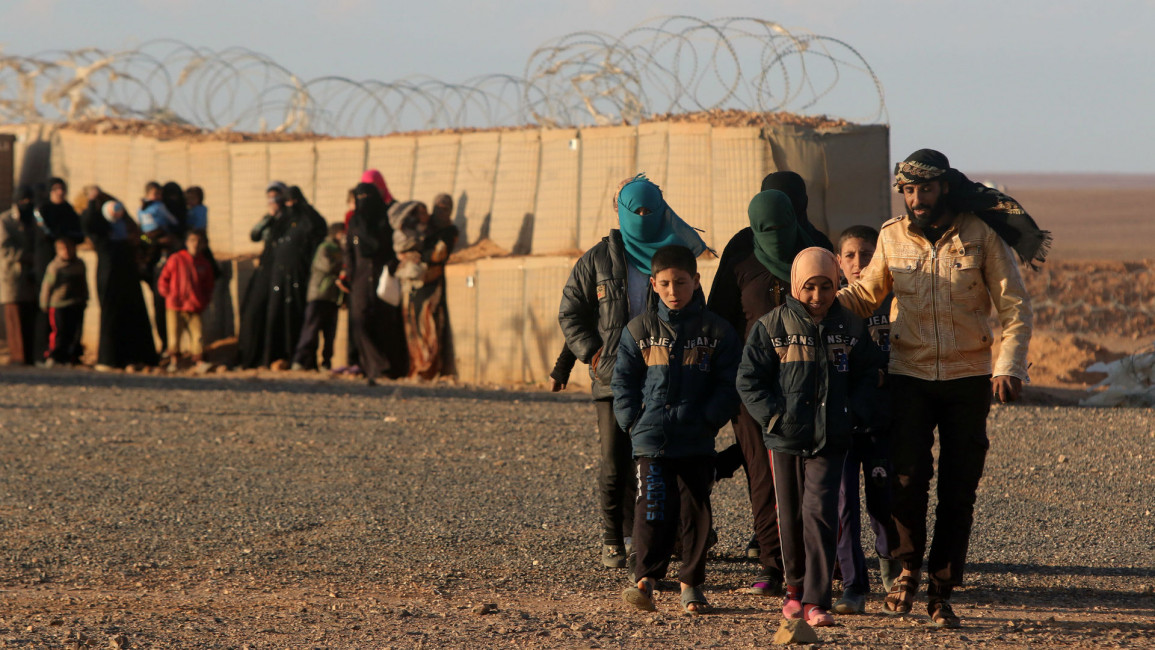UN humanitarian official to visit Syria for the first time since 2015
Mark Lowcock, under-secretary-general for humanitarian affairs will be in the Syrian capital Damascus for the majority of the three day visit, and will also make a stop in Homs in his first visit in this capacity.
The last visit by a UN humanitarian chief was in December 2015.
"In Damascus, Mr. Lowcock is expected to meet government officials, humanitarian agencies and partners, and other key stakeholders," the UN said in a statement.
"In Homs, he will meet with people who have suffered first hand from the effects of the crisis, and need life-saving assistance."
Some 60,000 Syrian refugees are stranded in a desolate area between Jordan and Iraq, and UN agencies were only able to begin delivering aid for the first time in six months on Monday.
Late last year, the International Committee of the Red Cross said it hopes to resume evacuations of those critically ill in Syria’s largest remaining siege in rebel-held Eastern Ghouta.
Following long negotiations with the Assad regime, medical charities were able to begin evacuating priority medical patients after a deal was struck between Damascus and a rebel faction.
Patients were evacuated from rebel-held Eastern Ghouta in return for the rebels releasing detainees.
But international aid agencies have voiced concern over the terms of the deal.
"It is a not a good agreement if they exchange sick children for detainees, that means children become bargaining chips in some tug of war," said Jan Egeland, the UN humanitarian adviser.
The region east of Damascus has been under near-daily bombardment and a crippling regime siege since 2013, but rebels controlling the area have been able to use it as a launch pad for rocket and mortar attacks on the capital.
The beleaguered 100-square-kilometre enclave's estimated 400,000 inhabitants are suffering severe shortages of food and medicine.
Children there are particularly vulnerable to malnutrition.
Rights groups, including Amnesty International, have accused the Assad regime of using illegal cluster munitions on the besieged enclave.
Despite the civilian suffering caused by the blockade, rebel groups in Ghouta "still have a popular base, because thousands of their fighters are from the region."
Eastern Ghouta is one of the last remaining opposition strongholds in Syria. Recent weeks have seen an increase in violence and aid groups have expressed "grave" concerns over the deteriorating situation in the region.
The Syrian conflict began when the Baath regime, in power since 1963 and led by Assad, responded with military force to peaceful protests demanding democratic reforms during the Arab Spring wave of uprisings, triggering an armed rebellion fuelled by mass defections from the Syrian army.
The brutal tactics pursued mainly by the regime, which have included the use of chemical weapons, sieges, mass executions and torture against civilians have led to war crimes investigations.



